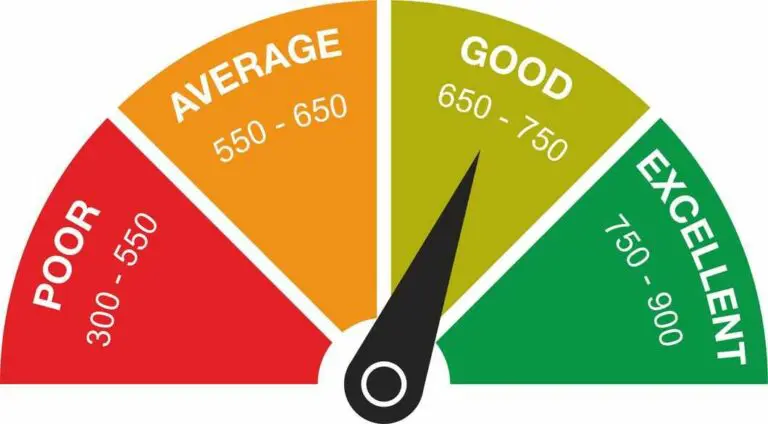In many developed economies, credit scores have long been a crucial part of financial systems, influencing everything from loan approvals to rental agreements. However, in Nigeria, the adoption of credit scoring is relatively new, with financial institutions and fintech companies now integrating it into their lending models.
What Is a Credit Score?
A credit score is a numerical representation of an individual’s creditworthiness. It is based on their borrowing history, repayment behavior, and financial activities. Lenders, such as banks and microfinance institutions, use credit scores to assess the risk of lending money to an individual.
Typically, credit scores range from 300 to 850 in most international models, with higher scores indicating lower credit risk. In Nigeria, the scoring system may vary depending on the credit bureau and the lender’s criteria.
Why Is a Credit Score Important?
Having a good credit score is essential because it affects:
- Loan Approvals – Banks and digital lenders now check credit scores before approving loans. A high score increases the chances of getting approved for loans with better terms.
- Interest Rates on Loans – A good credit score can help you secure loans with lower interest rates, while a poor score may result in higher rates or outright rejection.
- Access to Higher Credit Limits – Lenders are more willing to offer larger loans or credit limits to individuals with strong credit histories.
- Easier Access to Financial Services – As Nigeria embraces financial inclusion, credit scores could influence eligibility for mortgage loans, car financing, and even business funding.
- Employment and Rental Opportunities – Some employers and landlords in Nigeria may begin using credit scores to assess financial responsibility before offering jobs or rental agreements.
How Is a Credit Score Calculated?
In Nigeria, credit scores are typically determined by credit bureaus such as CRC Credit Bureau, First Central Credit Bureau, and CreditRegistry. They use data from financial institutions, utility companies, and digital lenders to calculate a score based on:
- Payment History (35%) – Timely repayment of loans and bills
- Credit Utilization (30%) – The percentage of credit limit used
- Length of Credit History (15%) – How long an individual has been using credit
- Types of Credit Used (10%) – The mix of loans, credit cards, and retail accounts
- New Credit Applications (10%) – How often one applies for new credit lines
How to Check Your Credit Score in Nigeria and the Major Credit Bureaus
With Nigeria’s growing adoption of credit scoring, individuals and businesses must know how to check and improve their credit ratings. Several credit bureaus in the country track financial activities and generate credit reports. Here’s a breakdown of the key players and how you can access your credit score.
Major Credit Bureaus in Nigeria
Nigeria has three main Central Bank of Nigeria (CBN)-licensed credit bureaus responsible for collecting, managing, and analyzing credit data:
1. CRC Credit Bureau: – Established in 2008, CRC Credit Bureau provides credit reports and scores to individuals and businesses.
Offers MyCRC Score, which allows individuals to check their creditworthiness.
Provides insights into financial health and recommendations for improving scores.
2. First Central Credit Bureau: – A leading credit reporting agency offering risk analysis tools for lenders and consumers.
Allows individuals to request their credit reports online.
3. CreditRegistry: One of Nigeria’s earliest credit bureaus, CreditRegistry offers real-time credit reports and monitoring services.
Provides services for individuals, lenders, and businesses.
How to Check Your Credit Score in Nigeria
Most credit bureaus allow individuals to check their credit scores online. Here’s a step-by-step guide:
Option 1: Checking via CRC Credit Bureau
- Visit www.crccreditbureau.com.
- Navigate to “Get My Credit Report” or “Get MyCRC Score” section.
- Register with your Bank Verification Number (BVN) or National Identification Number (NIN).
- Complete the identity verification process.
- Receive your credit score and full report online.
Option 2: Checking via First Central Credit Bureau
- Go to www.firstcentralcreditbureau.com.
- Select the option for personal credit reports.
- Provide your BVN and required personal details.
- Request a free or paid credit report based on available options.
Option 3: Checking via CreditRegistry
- Visit www.creditregistry.ng.
- Click on “Get Your Credit Report”.
- Register using your personal details, including BVN or NIN.
- Follow verification steps and obtain your credit report.
How Often Can You Check Your Credit Score?
At least once a year for free – The CBN mandates credit bureaus to provide a free credit report once every 12 months upon request.
Additional reports may attract a small fee, usually between ₦1,500 and ₦5,000 depending on the bureau and service requested.
Why You Should Regularly Check Your Credit Score
1). Avoid Loan Rejections – Knowing your score beforehand helps you understand your chances of approval.
2). Detect Fraud & Errors – Checking your report ensures that unauthorized loans or mistaken entries are corrected.
3). Negotiate Better Loan Terms – A high credit score can help secure lower interest rates and better repayment terms.
4). Improve Financial Planning – Understanding your financial standing helps you make smarter money decisions.
How to Improve Your Credit Score in Nigeria
- Pay bills and loans on time – Late payments can negatively affect your score.
- Avoid excessive borrowing – Only take loans you can repay comfortably.
- Monitor your credit report – Check your credit report for errors and dispute inaccuracies.
- Use credit responsibly – Keep your credit utilization ratio low.
- Build a good financial history – Maintain active bank accounts and positive relationships with lenders.
The Future of Credit Scoring in Nigeria
As Nigeria shifts towards a credit-based economy, a strong credit score will become increasingly vital for financial stability. With fintech innovations and regulatory frameworks evolving, individuals and businesses must understand and actively manage their credit scores to access better financial opportunities.






